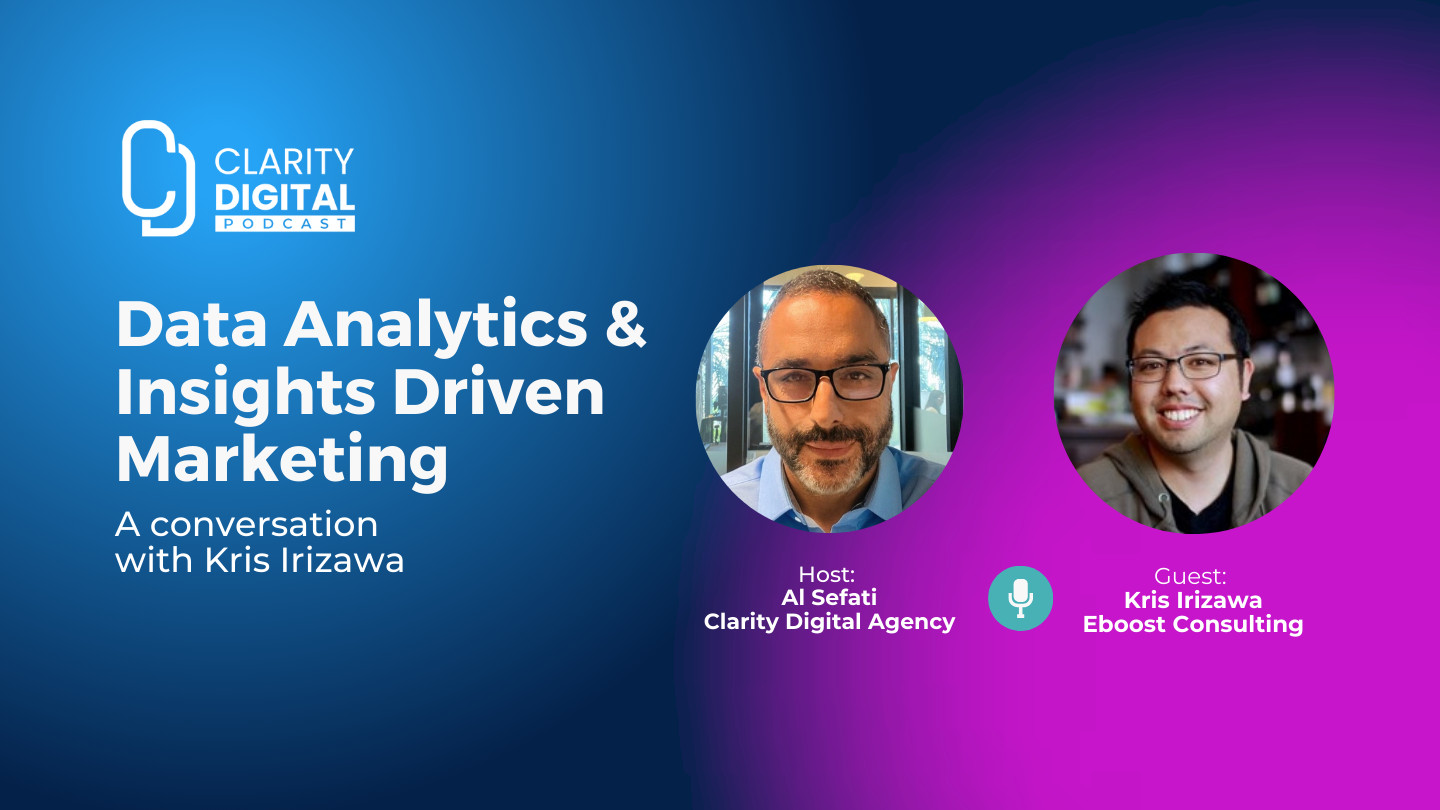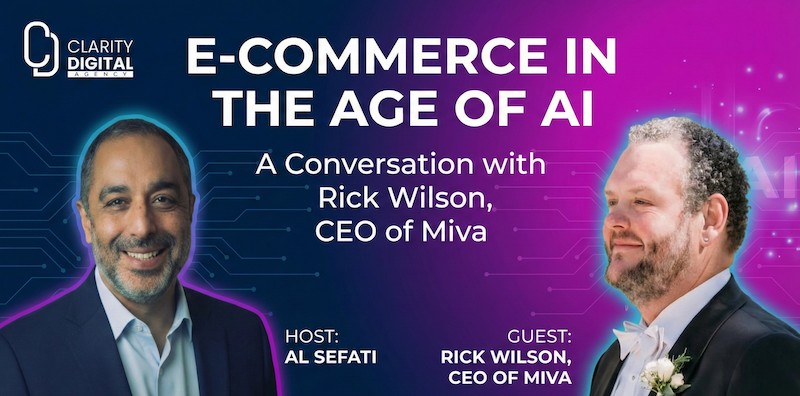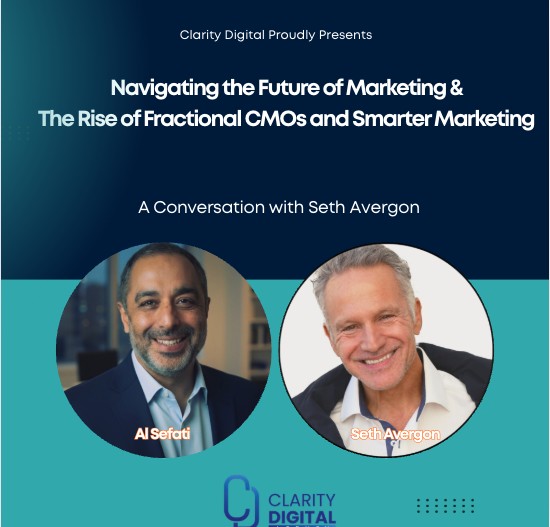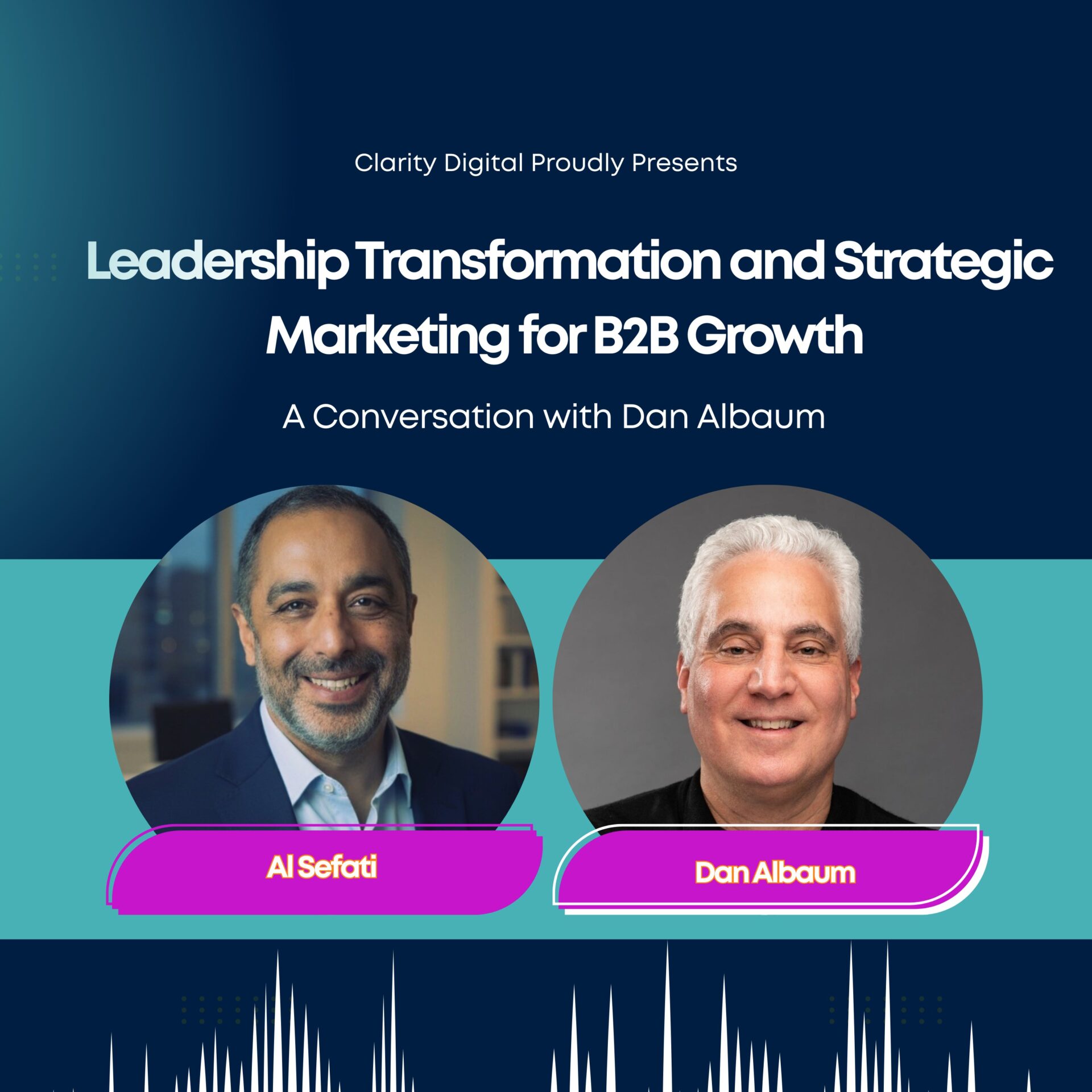Clarity Digital Podcast Summary: Marketing Analytics, AI, and Smarter Data-Driven Decisions
Guest: Kris Irizawa, COO of Eboost Consulting
Host: Al Sefati, CEO of Clarity Digital Agency
Introduction: The Intersection of Marketing Analytics and AI
In this episode of the Clarity Digital Podcast, Al Sefati welcomes Kris Irizawa, COO of Eboost Consulting, to discuss marketing analytics, AI, and how data-driven decision-making is reshaping the industry. The conversation covers Google Analytics 4 (GA4), attribution models, campaign tagging, and how AI is influencing ad performance and marketing strategy.
Al and Kris first met at Digital Summit, where they connected over their shared passion for analytics, marketing automation, and the importance of understanding data beyond surface-level metrics. They explore the common mistakes marketers make, particularly in assuming that simply installing Google Analytics or using automated bidding strategies is enough.
Kris Irizawa’s Background and Eboost Consulting
Kris introduces himself as the COO of Eboost Consulting, a Southern California-based agency specializing in paid search, paid social, and data analytics. Eboost is part of Principal Group, a Tokyo-based company with over 100 employees. Since acquiring Eboost three years ago, the focus has been on bridging data analytics with paid media to drive performance for U.S. and Japanese companies expanding into international markets.
Al reflects on his past experience working for a Japanese company, mentioning their “work hard, party hard” culture—a sentiment Kris agrees with, describing their team as “warriors” who grind while also valuing creativity in marketing.
The Problem with “Set It and Forget It” Marketing Strategies
Kris explains that many marketers mistakenly believe that AI-driven ad platforms like Google Ads and Meta (Facebook) Ads are entirely automated and self-optimizing. However, AI and machine learning models are black boxes, meaning marketers don’t fully know how these algorithms prioritize certain ad placements, budgets, or audiences.
He highlights a key example from August 2023, when Meta changed its algorithm, leading to a sudden drop in conversion rates for clients with longer sales cycles. Many marketers didn’t realize the algorithmic shift favored shorter attribution windows, requiring them to retrain the AI models to recognize high-value conversions over time.
Al shares a similar experience where Google’s auto-bidding strategy initially improved conversion rates but resulted in low-quality leads. The lesson? AI is a tool, not a substitute for strategic oversight—marketers must continuously analyze and optimize campaigns rather than blindly trusting automation.
Breaking Down Marketing Analytics into Three Key Areas
Kris outlines three core areas of marketing analytics that every business must focus on:
- Tag Management
- Collecting the right data through tools like Google Tag Manager (GTM) and Tealium.
- Ensuring that events, conversions, and user interactions are properly tracked.
- Analytics & Data Interpretation
- Using tools like Tableau and Looker to analyze customer behavior.
- Running hypothesis-driven A/B tests to measure what’s truly working.
- Data Engineering & Dashboards
- Moving beyond simple Google Analytics reports to structured data warehouses.
- Using SQL, BigQuery, Snowflake, and Databricks to create advanced reporting dashboards.
Understanding Data Lakes vs. Data Warehouses
Al asks Kris to clarify “data lakes” vs. “data warehouses.”
- A data lake is a massive storage repository where raw, unstructured data is dumped from multiple sources (Google Ads, Meta, CRM, etc.).
- A data warehouse is an organized, structured version of that data, optimized for reporting, analysis, and faster queries.
Kris explains that most businesses fail to manage large datasets properly, leading to slow reporting and poor insights. To optimize analytics, marketers must store, process, and query data efficiently rather than relying solely on live API connections (which can slow down dashboards like Looker Studio).
The Hidden Impact of Paid Search on Organic Traffic
Al shares a real-world example of misinterpreted SEO data:
- His team noticed that a client’s organic search traffic dropped during the holidays, even though SEO rankings remained strong.
- Upon investigation, they found that the Google Ads team had quadrupled ad spend on branded keywords, cannibalizing organic homepage traffic.
- This misattribution made it look like SEO was underperforming, when in reality, paid ads were intercepting organic searches.
Kris agrees, stating that most businesses fail to analyze the full funnel impact of their marketing mix—especially when running multi-channel campaigns across paid and organic channels.
Why Sales and Marketing Teams Need Better Communication
A common problem in B2B marketing is the disconnect between marketing and sales teams.
Kris explains that in many cases:
- Marketing teams focus on lead volume, optimizing for low-cost conversions without verifying lead quality.
- Sales teams, on the other hand, only realize the issue months later, when poor leads fail to convert.
- By the time they provide feedback, the damage is already done, and marketing budgets have been wasted on ineffective campaigns.
To fix this, Kris emphasizes the importance of real-time collaboration between sales and marketing teams, allowing them to iterate faster instead of waiting months for insights.
Choosing the Right Attribution Model
One of the most debated topics in analytics is which attribution model to trust.
- Google Ads, Meta, and other ad platforms each have their own biased attribution models.
- Google Analytics 4 (GA4) introduced Data-Driven Attribution (DDA), which distributes credit dynamically across all touchpoints.
- Many companies still use Last-Click Attribution, which undervalues earlier touchpoints in the customer journey.
Kris advises businesses to use GA4 as the source of truth, while also cross-referencing platform-specific data to get a holistic view.
How to Measure Content Performance in GA4
Since GA4 removed bounce rates, Al asks Kris how marketers should evaluate content success.
Kris suggests using:
- Engaged Sessions (visitors who spend a certain amount of time on the site).
- Custom Reports in GA4’s Explore Tool to track which content leads to conversions.
- Segmentation—analyzing behavior differences between converters and non-converters.
He emphasizes that the goal isn’t just to track micro-conversions like newsletter signups, but rather to identify content that influences actual revenue-driving actions.
Final Thoughts & Takeaways
Kris and Al wrap up the conversation by discussing:
- The importance of multi-channel attribution and cross-platform data validation.
- How marketers must take ownership of AI-driven campaigns instead of blindly trusting automation.
- The need for better internal communication between marketing, sales, and data teams.
Where to Find Kris Irizawa
- Website: Eboost Consulting
- LinkedIn: Kris Arizawa
- Twitter/X: K_Arizawa
Al thanks Kris for sharing his insights and looks forward to future discussions on AI, data, and digital marketing best practices.





